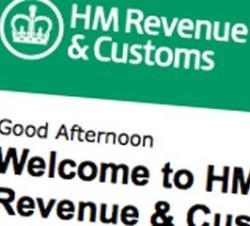An HMRC official has dashed hopes that the sector may be able to make big savings as a result of the proposed VAT exemption on shared back-office services, in a speech to charity finance directors this week.
Finance professionals in the sector have been crossing their fingers in recent months that a new VAT exemption might be introduced to cover shared services. The VAT payable on the services provided by a cost-sharing group of charities is often quoted as a barrier to collaboration. HMRC are consulting on how a cost-sharing exemption could be introduced as a potential solution to the problem.
At a CFDG London members’ meeting earlier this week, David Bond, the senior policy adviser at HMRC leading the consultation, said that the cost-sharing exemption was introduced into European law as far back as 1978, but had never been implemented in the UK, mainly because there had been little demand for it. But the situation has now changed, and organisations aware of the potential benefits of the exemption – such as universities, housing associations, local authorities and charities – are actively lobbying for its implementation.
However, Bond dropped a bombshell when he warned that to qualify for any exemption that is introduced, services provided by a cost-sharing group of charities would have to be “directly necessary”. He said that back-office services such as payroll, finance and IT, that offer most potential for cost sharing, would not technically meet the existing legal definition of “directly necessary” and therefore would not currently be covered by any exemption.
Bond accepted that if the “directly necessary” term remains narrowly defined, any cost-sharing exemption that is introduced could prove to be of little use to charities. HMRC was therefore looking at possible amendments to the definition. He said that HMRC might be prepared to accept that all services are “directly necessary” provided exempt and/or non-business activity exceeds 85 per cent of total activities undertaken by the organisation concerned.
Ian Theodoreson, the new chair of CFDG, urged members to respond to HMRC’s consultation on the subject before the closing date of 30 September to ensure that the case for a workable charity exemption is made as strongly as possible.
An HMRC spokesman said: "No decisions on how to proceed have been made, nor will they be until after the formal consultation period has ended and the responses have been considered.
"The VAT cost-sharing exemption allows organisations engaged in exempt and/or non-business activities, which includes charities, the education sector and housing associations to use the exemption in relation to services they receive that are ‘directly necessary’ to their exempt and/or non-business activity."









